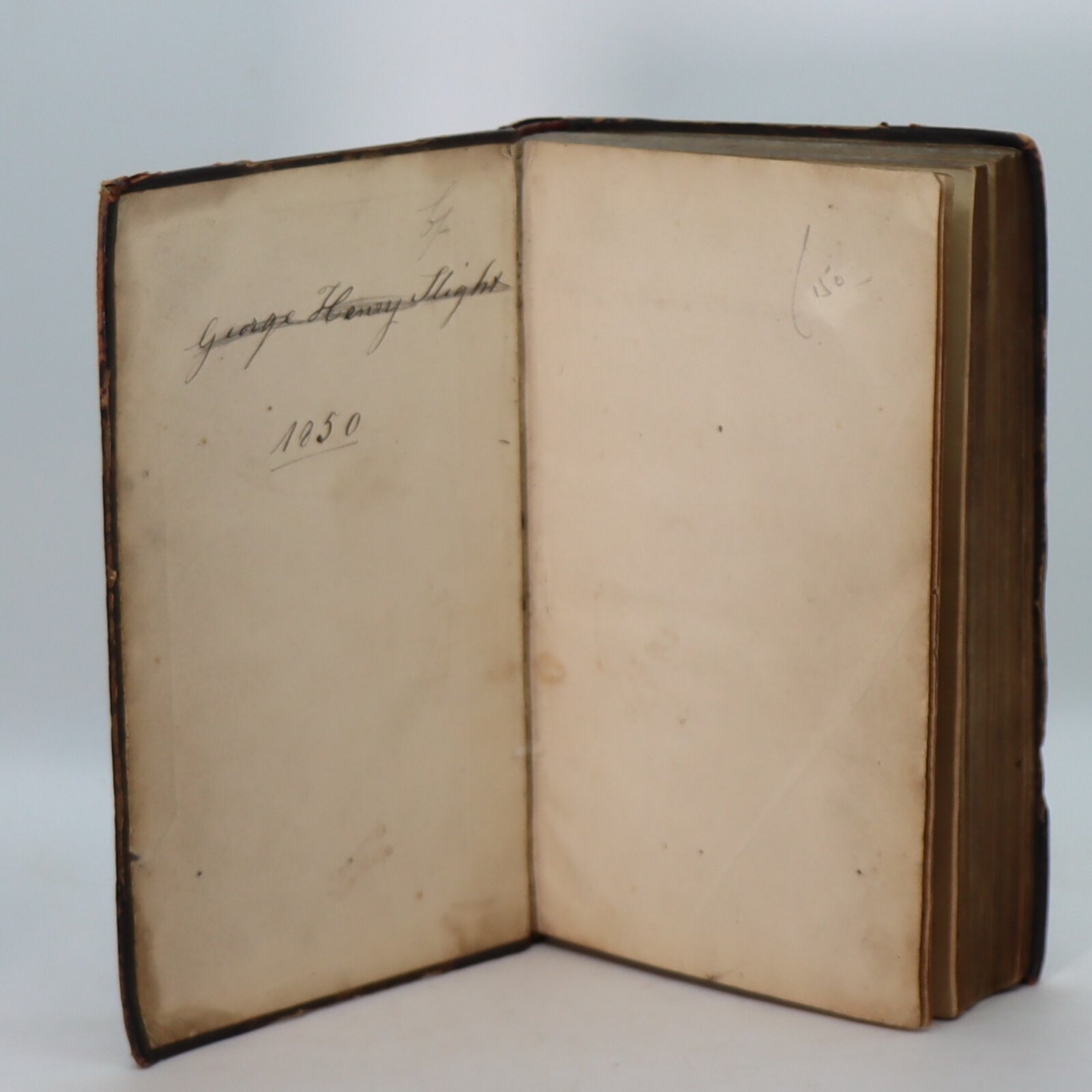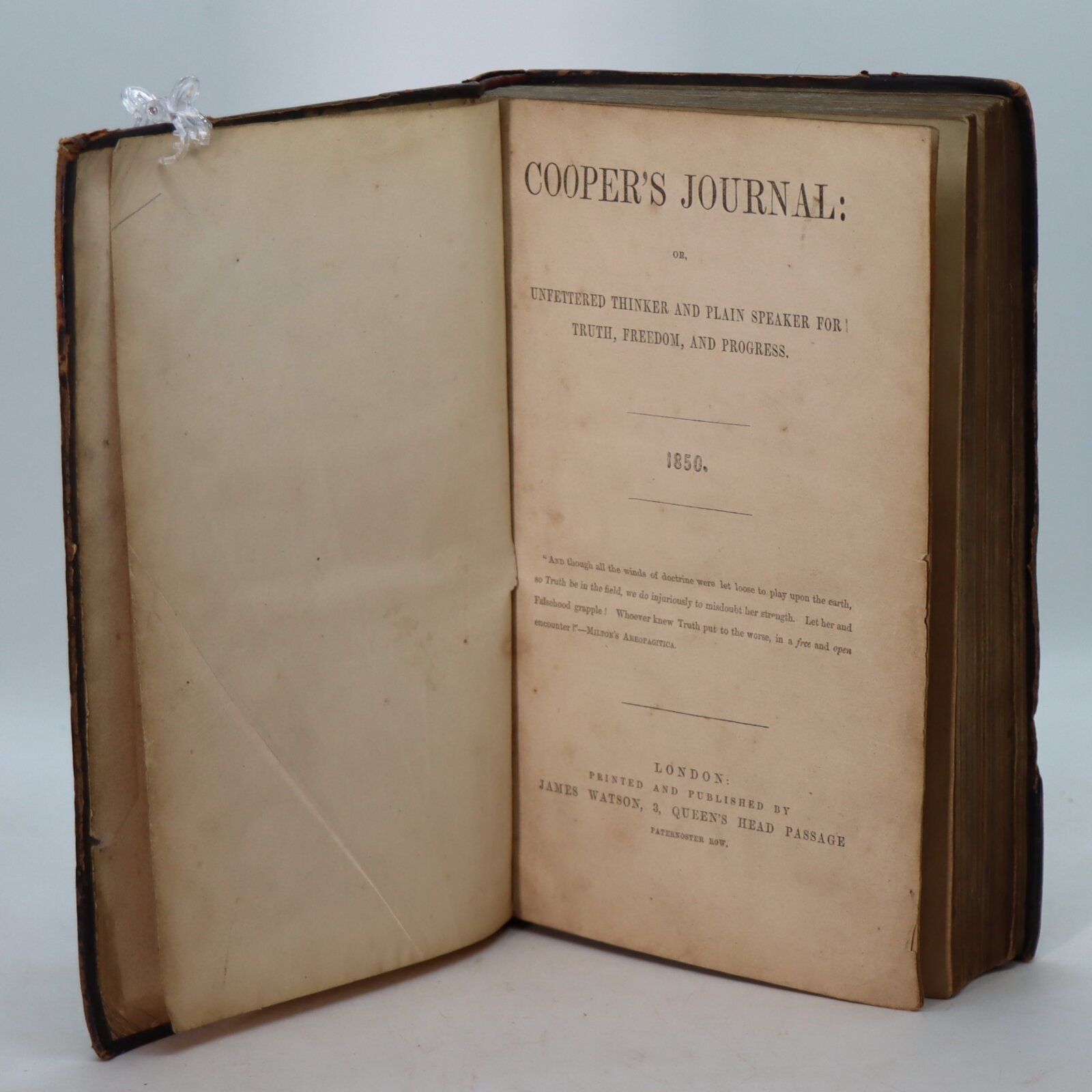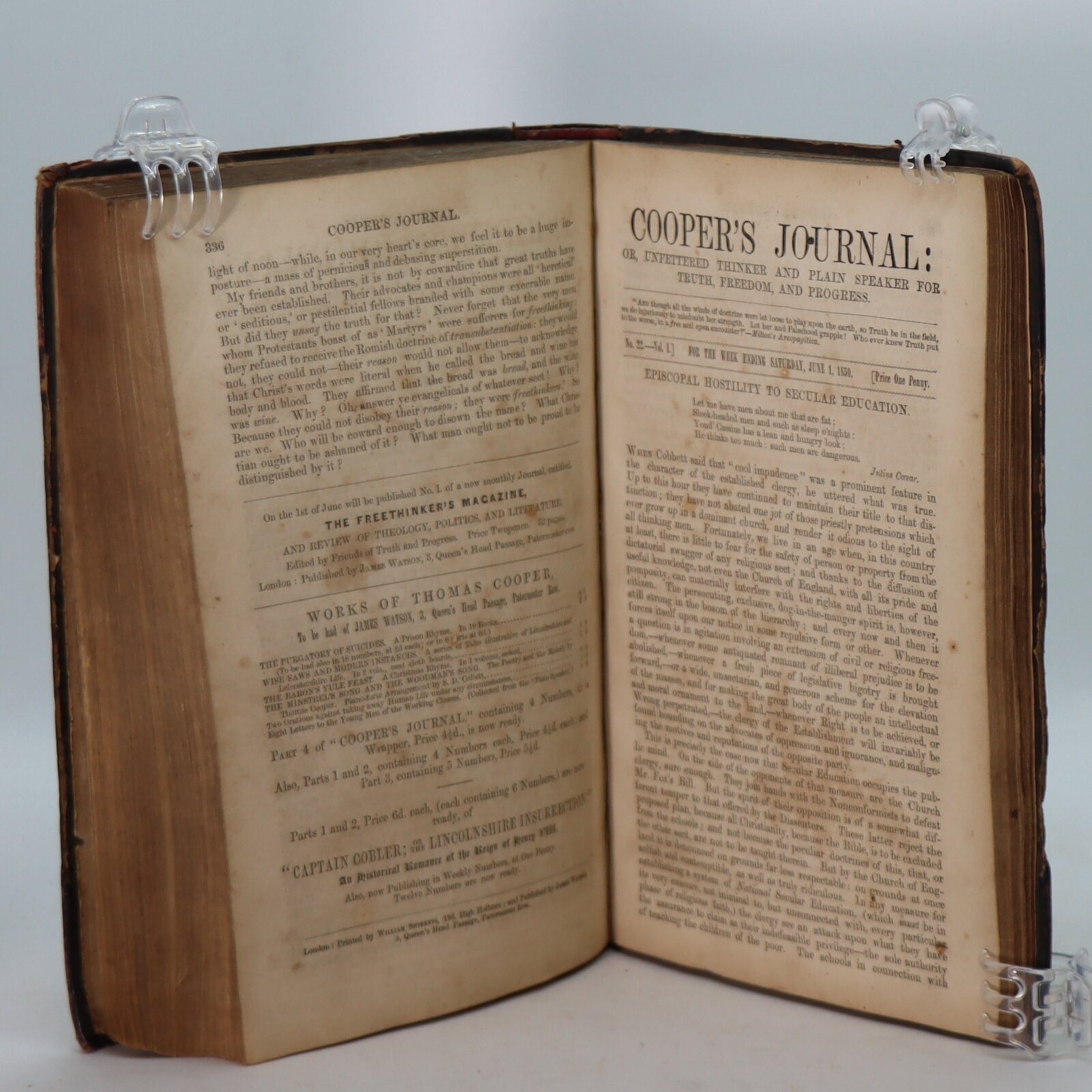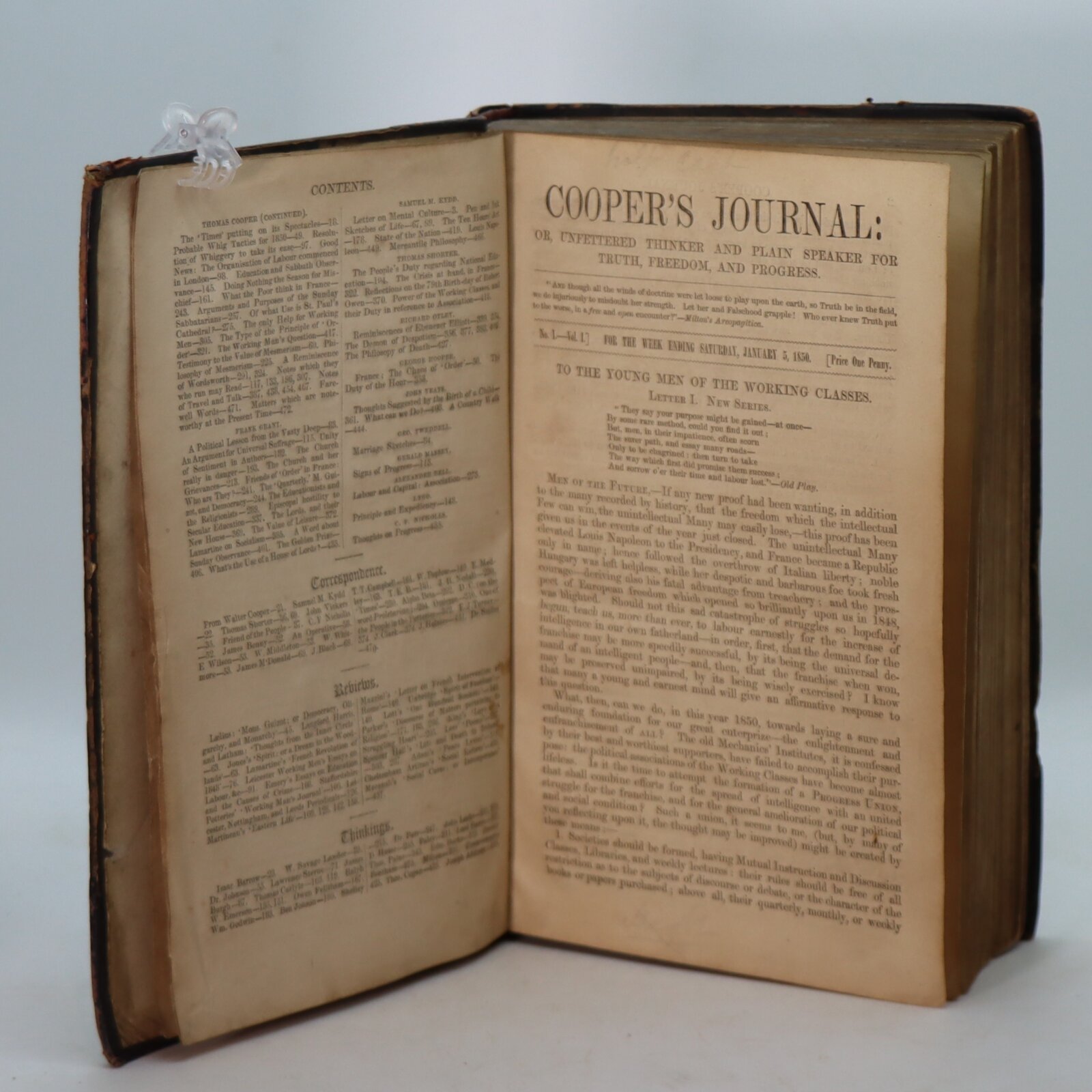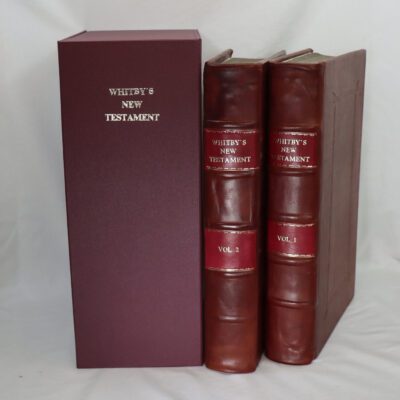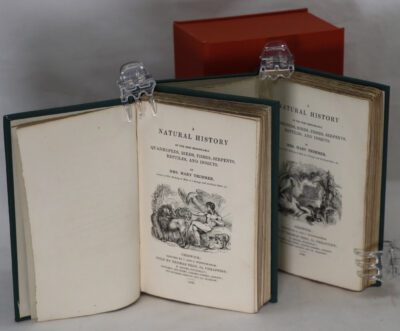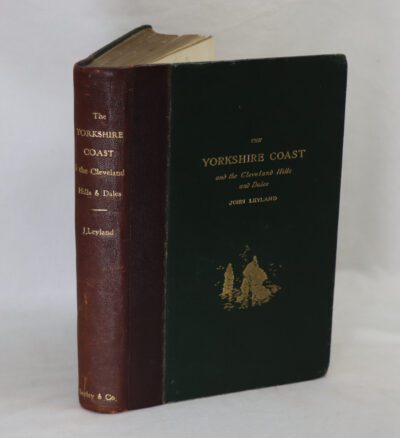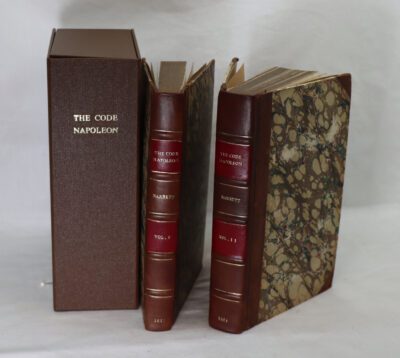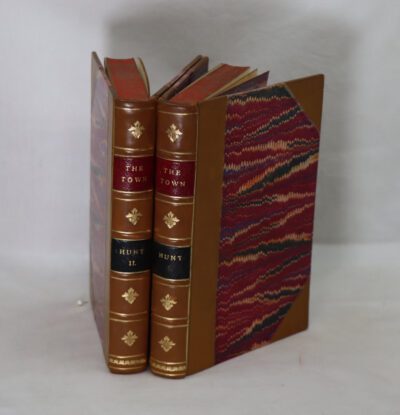Cooper's Journal. 1850.
By Thomas Cooper
Printed: 1850
Publisher: James Watson. London
| Dimensions | 15 × 21 × 3 cm |
|---|---|
| Language |
Language: English
Size (cminches): 15 x 21 x 3
Condition: Fine (See explanation of ratings)
Item information
Description
Black leather spine with maroon title plate, gilt banding and lettering. Black worn boards.
F.B.A. provides an in-depth photographic presentation of this item to stimulate your feel and touch. More traditional book descriptions are immediately available
A most interesting and unusual set of essays
Thomas Cooper (October 22, 1759 – May 11, 1839) was an Anglo-American economist, college president and political philosopher. Cooper was described by Thomas Jefferson as “one of the ablest men in America” and by John Adams as “a learned ingenious scientific and talented madcap.” Dumas Malone stated that “modern scientific progress would have been impossible without the freedom of the mind which he championed throughout life.”] His ideas were taken very seriously in his own time: there were substantial reviews of his writings, and some late eighteenth-century critics of materialism directed their arguments against Cooper, rather than against the better-known Joseph Priestley.
Later in life, Cooper became an ardent and outspoken defender of slavery, and personally owned several slaves.
Like Priestley, Cooper was very highly esteemed by Thomas Jefferson, who secured for him the appointment as first professor of natural science and law in the University of Virginia – a position which Cooper was forced to resign under the fierce attack made on him by the Virginia clergy. He later served as the chair of chemistry at Dickinson College in Carlisle, Pennsylvania (1811–1814) and at the University of Pennsylvania (1818–1819).
He became a professor of chemistry at South Carolina College (now the University of South Carolina) in 1819. Later he would also provide instruction in political economics. In 1820, he became acting president of this institution and was president from 1821 until 1833 when he resigned owing to the opposition within the state to his liberal religious views. In December 1834, owing to continued opposition, he resigned his professorship. Though he became increasingly controversial during his tenure as president, he was very popular with his students. Most of them came to his defense in the years of 1831–33, when Cooper was frequently challenged by the state legislature. Although many students disagreed with Cooper’s philosophies, they liked the man personally.
Condition notes
Want to know more about this item?
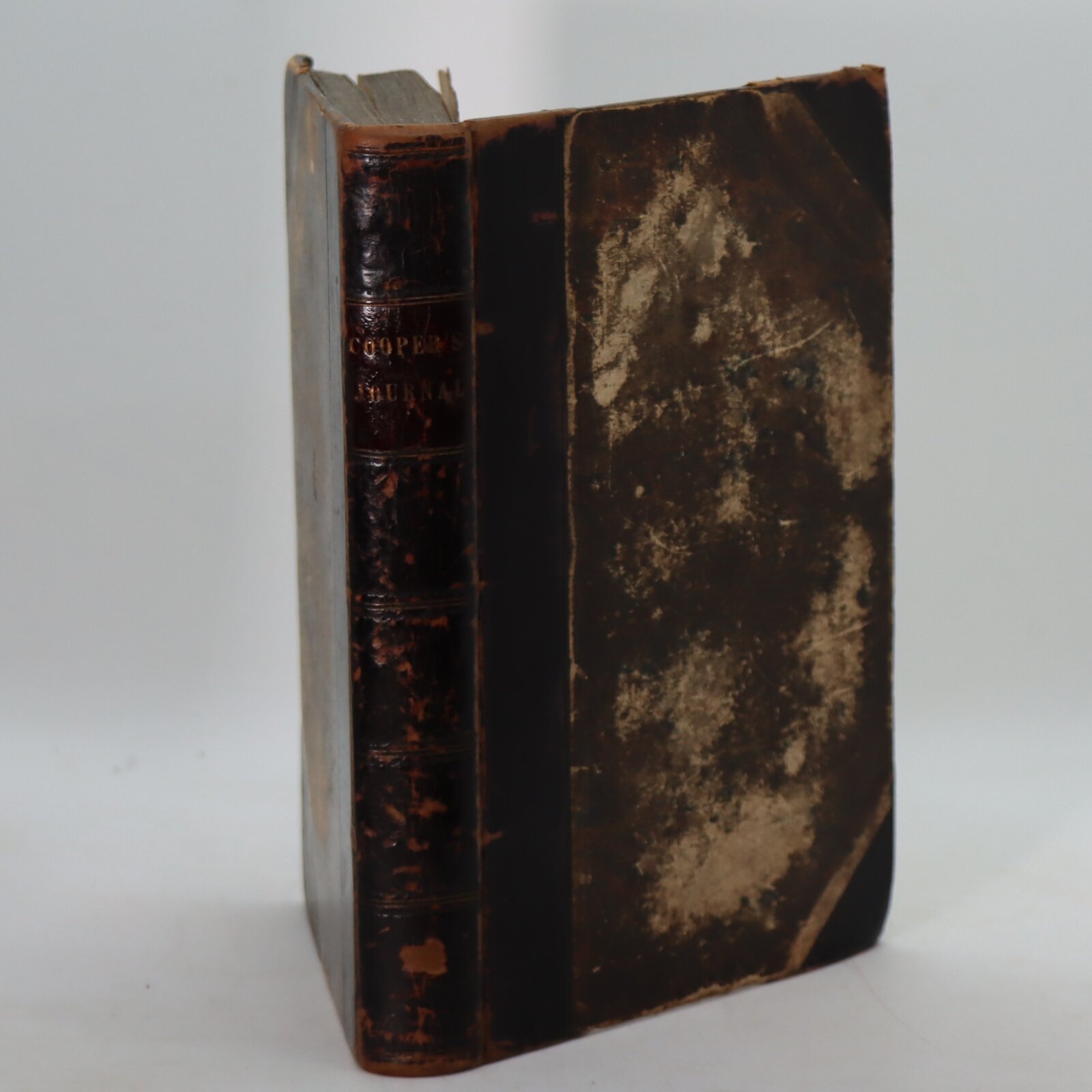
Share this Page with a friend

